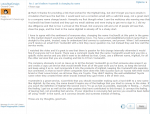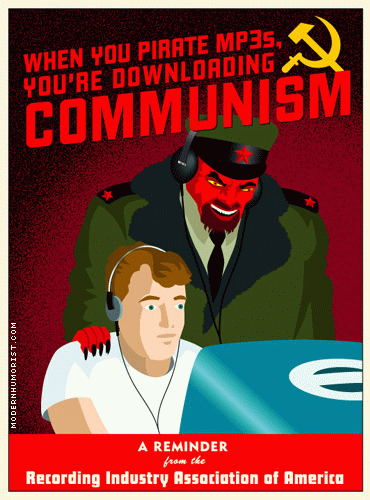Netflix has been making some profound missteps in recent months. It definitely shows up in their stock price… it’s not every company’s intentions to drop 50% in three months due to the lame moves you are making. This past week’s lame misstep comes in the form of a separation of businesses, and a really dumb “apology letter.”
Now, not everyone seems to read things the same way that I do. In this edition of Dave’s Breakdown, I will go in and explain Mr. Reed Hasting’s apology letter for all to truly understand, along with some of my own reflections to top it off. To preface this, at the moment I have been a Netflix customer for about five years.
The original article is located here.
–
“I messed up. I owe everyone an explanation.
It is clear from the feedback over the past two months that many members felt we lacked respect and humility in the way we announced the separation of DVD and streaming, and the price changes. That was certainly not our intent, and I offer my sincere apology. I’ll try to explain how this happened.”
What this really means is “I’m sorry you guys didn’t like the price adjustment, but oh guess what, here’s something coming up that is universally more inconveniencing for everyone that we forgot to mention when we separated our services…”
What he’s really sorry for is that their stock price fell by 40% when they raised prices and split services.
“For the past five years, my greatest fear at Netflix has been that we wouldn’t make the leap from success in DVDs to success in streaming. Most companies that are great at something – like AOL dialup or Borders bookstores – do not become great at new things people want (streaming for us) because they are afraid to hurt their initial business. Eventually these companies realize their error of not focusing enough on the new thing, and then the company fights desperately and hopelessly to recover. Companies rarely die from moving too fast, and they frequently die from moving too slowly.”
Rarely dying from something doesn’t mean it’s not possible. Netflix may just be another case study in the “rare” category. Not to mention, how does something that COMPLIMENTS what you are going to be focusing more on in the future TAKE AWAY from it? For example, AOL had dial-up. What the hell else were they going to do once dial-up connections were not state-of-the-art? They had to defend dial-up connections, there was no point in providing their services for Broadband connections on account they don’t even provide the service for it. AOL could have probably done stuff a little smarter, but they’ve transformed into a web conglomerate. What happened to EarthLink, another dial-up provider? They’re still in business, apparently, doing what they’ve been doing. The “real” AOL is essentially Time Warner. Time Warner just shat out what was left of the AOL brand and company that they didn’t want anymore and the “new” AOL is like today’s AT&T — not the same, but not new either.
Borders bookstore was a retail store that sells books, and they offered no electronic versions of books. Ok, except the reason they failed is because the Print industry, the Music industry, and the lack of them creating a service to take advantage of the new evolutions of those industries into account. They also operated as retail stores and leases are expensive when you have thousands of stores. Now, you have the polar opposite of Borders (a failed retail bookstore chain) with Barnes & Nobles (a still-successful bookstore) that is selling electronic books and music IN ADDITION TO having their brick and mortar stores. Hey, wow! Barnes & Nobles didn’t close all their retail stores or spin off all their retail bookstores into some weird half-breed retail company, did they? No. They kept them all under the same guise, and guess what they sell EVERYTHING, not just one thing.
“When Netflix is evolving rapidly, however, I need to be extra-communicative. This is the key thing I got wrong.
In hindsight, I slid into arrogance based upon past success. We have done very well for a long time by steadily improving our service, without doing much CEO communication. Inside Netflix I say, “Actions speak louder than words,” and we should just keep improving our service.”
What this really means is: “Before we started to worry about our stock price losing value and in-turn any investment opportunities we may have needed, I didn’t have to write anything to our customers in hopes to stop our free-falling stock prices before they hit the flushing toilet.”
“But now I see that given the huge changes we have been recently making, I should have personally given a full justification to our members of why we are separating DVD and streaming, and charging for both. It wouldn’t have changed the price increase, but it would have been the right thing to do.”
“I just thought that you guys would accept whatever business decisions I wanted to do because you guys love Netflix, and by association, MEEEE!”
“So here is what we are doing and why:
Many members love our DVD service, as I do, because nearly every movie ever made is published on DVD, plus lots of TV series. We want to advertise the breadth of our incredible DVD offering so that as many people as possible know it still exists, and it is a great option for those who want the huge and comprehensive selection on DVD. DVD by mail may not last forever, but we want it to last as long as possible.”
Yes, yes, we love DVDs!
“I also love our streaming service because it is integrated into my TV, and I can watch anytime I want. The benefits of our streaming service are really quite different from the benefits of DVD by mail. We feel we need to focus on rapid improvement as streaming technology and the market evolve, without having to maintain compatibility with our DVD by mail service.”
Wait… so what you’re saying is…
“So we realized that streaming and DVD by mail are becoming two quite different businesses, with very different cost structures, different benefits that need to be marketed differently, and we need to let each grow and operate independently. It’s hard for me to write this after over 10 years of mailing DVDs with pride, but we think it is necessary and best: In a few weeks, we will rename our DVD by mail service to ‘Qwikster’.”
AW MY GAWD WHAT THE FUCK IS A QWIK. It’s hard for you to write that you’re renaming a service. Ok, so what, you’re renaming the service. That means you can market it and yaddayaddayadda and I can still do what I’ve been doing for the past three years, right?
“We chose the name Qwikster because it refers to quick delivery. We will keep the name ‘Netflix’ for streaming.
Oh, ok, well that’s acceptable.
“Qwikster will be the same website and DVD service that everyone is used to.”
Sweet, sounds good.
“It is just a new name,”
Ok, I get it.
“and DVD members will go to qwikster.com to access their DVD queues and choose movies.”
Wait, what?
“One improvement we will make at launch is to add a video games upgrade option, similar to our upgrade option for Blu-ray, for those who want to rent Wii, PS3 and Xbox 360 games. Members have been asking for video games for many years, and now that DVD by mail has its own team, we are finally getting it done. “
Wait, don’t try to change the subject here. What the hell are you talking about, a different web site? You just said it was the same site!
“Other improvements will follow. Another advantage of separate websites is simplicity for our members.”
HEY! YOU ARE A FUCKING ASSHOLE. LOOK AT WHAT YOU JUST SAID IN THE LAST PARAGRAPH:
“Qwikster will be the same website and DVD service that everyone is used to.”
What the FUCK are you talking about? You just said Qwikster will be the same web site, and then you’re saying they’re SEPARATE web sites. Are you talking about it being on the same web host? No one cares that you’re on the same computer as another web site. I’m sure that my web site is on the same server as some other famously popular web site, but I’m not going around saying I’m the same web site as some random popular web site.
“Each website will be focused on just one thing (DVDs or streaming) and will be even easier to use.”
Easier than… what? What your web site is now? I guess that the most logical way of making this easier is to make both web sites work with each other, right?
“A negative of the renaming and separation is that the Qwikster.com and Netflix.com websites will not be integrated. So if you subscribe to both services, and if you need to change your credit card or email address, you would need to do it in two places. Similarly, if you rate or review a movie on Qwikster, it doesn’t show up on Netflix, and vice-versa.”
HOOOOLLYYY SHIT, and there’s the killer. What in the FUCK just happened. It’s like your boyfriend saying he’d use a condom and then taking it off right before he inserted. Or, it’s like your girlfriend taking off her pants and there’s a penis hanging off what you thought was going to be a vagina, but is really just testicles. This is the most asinine shot in the head I have ever read, save The Joy Luck Club. Holy. Shit.
“There are no pricing changes (we’re done with that!). Members who subscribe to both services will have two entries on their credit card statements, one for Qwikster and one for Netflix. The total will be the same as the current charges.”
I’m still numb from the last paragraph…
“Andy Rendich, who has been working on our DVD service for 12 years, and leading it for the last 4 years, will be the CEO of Qwikster.”
“We’re sending Andy off to die. See ya later, Rendich! Don’t forget to write!”
“Andy and I made a short welcome video. (You’ll probably say we should avoid going into movie making after watching it.)”
This video is a great reason why you shouldn’t make your corporate strategy into a video. It is not interesting. Also, what the fuck is with the sole red envelope there? Just so they can wipe their ass with it after the video is over? What’s with the sunglasses and the laptop? Were you doing some leisurely work (wearing sunglasses and using your laptop in the sun, even!) discovering what hue of red the Netflix envelope truly was and decided “Hey I’ve got a few minutes, let’s get Nathan down here with a camera while I’m typing up my ultra-cool apology letter that will totally fix all of our problems and make our stock go back up to 300 points and re-iterate what I’m saying to the populace of people who don’t care to read. We’re Netflix, after all!”
“We will let you know in a few weeks when the Qwikster.com website is up and ready. It is merely a renamed version of the Netflix DVD website, but with the addition of video games. You won’t have to do anything special if you subscribe to our DVD by mail service.”
Wait so if it is so easily renamed and its actually just the same fucking thing, why can’t you just have the fucking web site be the same fucking web site!
“For me the Netflix red envelope has always been a source of joy.”
That’s because it means money to you.
“The new envelope is still that distinctive red, but now it will have a Qwikster logo. I know that logo will grow on me over time, but still, it is hard. I imagine it will be the same for many of you.”
I think the least of our worries the color of the envelope and the way it looks. The experience has ALWAYS BEEN with the web site and the ease of using it, you sentimental tree murderer!
“We’ll also return to marketing our DVD by mail service, with its amazing selection, now with the Qwikster brand.”
Herein lies the only legitimate reason for them renaming their DVD by Mail service. Yes, you should have a different brand to promote your DVDs again if that’s what you wanted to do. However, Netflix DVD would have sufficed. Netflix Video Games would have sufficed to. I’ve heard weirder mismatches for companies in the past, not that I can remember any off the top of my head at the moment, but no one would have said “I don’t understand why Netflix has video games. They have ‘flix’ in their name, for crying out loud! I am totally canceling my account with Netflix because they have video games now, and it has nothing to do with streaming or television or movies or anything and it’s totally not optional oh em gee.”
What happens if Netflix wants to go into video game streaming, such as new services like OnLive have been doing? Is Qwikster going to separate out their DVD and disc-based video game services into some tertiary company? Where does it end! They only want to focus on one thing at a time in each business, yet they’re launching video games, which is arguably a different expenditure all together, and they’re doing omigosh, TWO THINGS AT THE SAME TIME! Call the board, let’s get another company split up in here!
Also, the reason why people were clamoring for video games in the first place was because it would have been from THE SAME WEB SITE FROM THE SAME COMPANY, WITH ONE BILL, AND ONE PAYMENT SYSTEM! If people wanted a gaming rental service separate from Netflix, they would have had GameFly already!! Focus groups would help you out to learn that!
“Some members will likely feel that we shouldn’t split the businesses, and that we shouldn’t rename our DVD by mail service. Our viewis with this split of the businesses, we will be better at streaming, and we will be better at DVD by mail.”
Why? You’re not EXPLAINING why you think it would be. What barriers are involved that make this necessary? You haven’t said anything that convinces me of any sort of argument that makes it seem like this is a good move. You say you want to focus on things one at a time, and you want to make another business. How does splitting out the WEB SITE or even your business do anything more for you? Whether it’s called Qwikster or Netflix, you guys are still in the same fucking buildings, aren’t you? Maybe you should reorganize your company and make a streaming division and a DVD/video game division underneath Netflix instead of spending money and creating a new shell company to send your neglected business model off to die.
“It is possible we are moving too fast – it is hard to say. But going forward, Qwikster will continue to run the best DVD by mail service ever, throughout the United States. Netflix will offer the best streaming service for TV shows and movies, hopefully on a global basis. The additional streaming content we have coming in the next few months is substantial, and we are always working to improve our service further.”
Moving too fast? How? You’re not moving at all. You’re taking your company in two different directions and, dare I say, setting up your tried-and-true business model up for sale when Netflix really decide to focus on one thing and one thing only — streaming.
“I want to acknowledge and thank our many members that stuck with us, and to apologize again to those members, both current and former, who felt we treated them thoughtlessly.
Both the Qwikster and Netflix teams will work hard to regain your trust. We know it will not be overnight. Actions speak louder than words. But words help people to understand actions.
Respectfully yours,
-Reed Hastings, Co-Founder and CEO, Netflix”
You know, I would have thought that a co-founder and CEO of this company would have thought, maybe just maybe, throwing out their original business model which started their company and made their success would be something more… unsettling than he may have originally thought the process to be. Starbucks wouldn’t spin off their coffee business into another retail store if their muffins became the hot new item at their stores. Hell, even if their muffins started pulling trillions of dollars in, they wouldn’t split that out into a new muffin chain. It doesn’t make sense!
Now what I think Netflix will see when this happens is a large drop off of subscribers to their new Qwikster service simply because founding a new web site and brand name is quite obviously an uphill battle, and forcing people to accept it is quite another entirely.
Netflix has a fanbase, Qwikster does not. I certainly say that I have no loyalty to something called Qwikster, but I do to Netflix. I can see why they would need to have a “different” brand because of the video games options coming about and for marketing purposes, but instead of being a completely separate web site, it should be a “portal” or “skin” to the main Netflix web site. Let’s say I go to Netflix, and then there’s a tab for Qwikster DVDs and Qwikster Games. Or if I go to Qwikster, I see an extra tab for Netflix Streaming Video.
As long as there is the same sort of integration for what we currently see, I don’t see why separating web sites benefits anyone — Netflix loses subscribers, I lose DVDs from Netflix, and we have to be mindful of another service with its own payment system, with its own customer service communication (if needed) etc etc.
It’s a hassle, especially when you consider you had it all in the same place before.
In one of the blog comments, Reed Hastings said that they don’t see Qwikster as being “that far away” from Netflix — as its only just “a link away” from each other… but so is MySpace to Facebook, and MSN to Google. There is a REASON people use Facebook or Google instead of all the other hullabaloo of assholery out there.
The Netflix web site is fine as it is.
If the excuse for this is their business is what needs to improve, how is separating web sites going to improve that considerably? If you need a different brand name, then make one. But don’t separate the services for the convenience of saying “that’s a different company, they’re doing their own thing, and we don’t care about it anymore.” You are still responsible, as a parent company, to make sure customers who are with your new company LIKE your new company, and you’re not just sending it off to die.
What it really comes down to is that Netflix is definitely interested in killing off the DVD portion — the only reason they’re even keeping it anymore is because streaming is going to see very high increases in cost, and they’re not sure if DVDs will end up having more business when the hammer comes down after their streaming licenses expire.
Associating the DVDs into the streaming plans only makes that amount charged for streaming go higher than it actually perceptibly is. It is a pre-emptive attack on what is bound to come. There are also rumors about how some companies force them to supply DVDs for some unrelated movies to have the license for a streaming version available, but how does spinning a company out into a subsidiary solve that? Netflix still owns Qwikster! For the time being, at least.
Maybe Netflix have to split it out to survive, after all. It still doesn’t change my opinion about having some sort of integration of services that make it easier for customers of both. But I’m not a business manager/CEO type person, so what the fuck ever, I guess Netflix is just smarter than their customers!
–
Update Oct 10, 2011
Rejoice! It appears that Netflix has reverted their prior decision to rename their DVD by Mail service into something stupid and crappy.
It appears that Netflix doesn’t want to spend money on focus groups or hire actual people to do research for them, instead they have opted to have their customers be exposed to flip-flopping decision-making and putting absolutely zero confidence in the way the company is thinking. If they stuck by their laurels, at least they wouldn’t have seemed like a bunch of pushovers.
However, apologizing for an apology seems to be a pretty funny concept, and in the end, I can at least be thankful that this stupid business decision wasn’t put through. The only good thing to come of the whole thing was Video Game rentals… and that seems to be put out to pasture as there is no mention of it anywhere. Do we really need to tell Netflix how to run their company well enough to not run it into the ground?





























































































































































